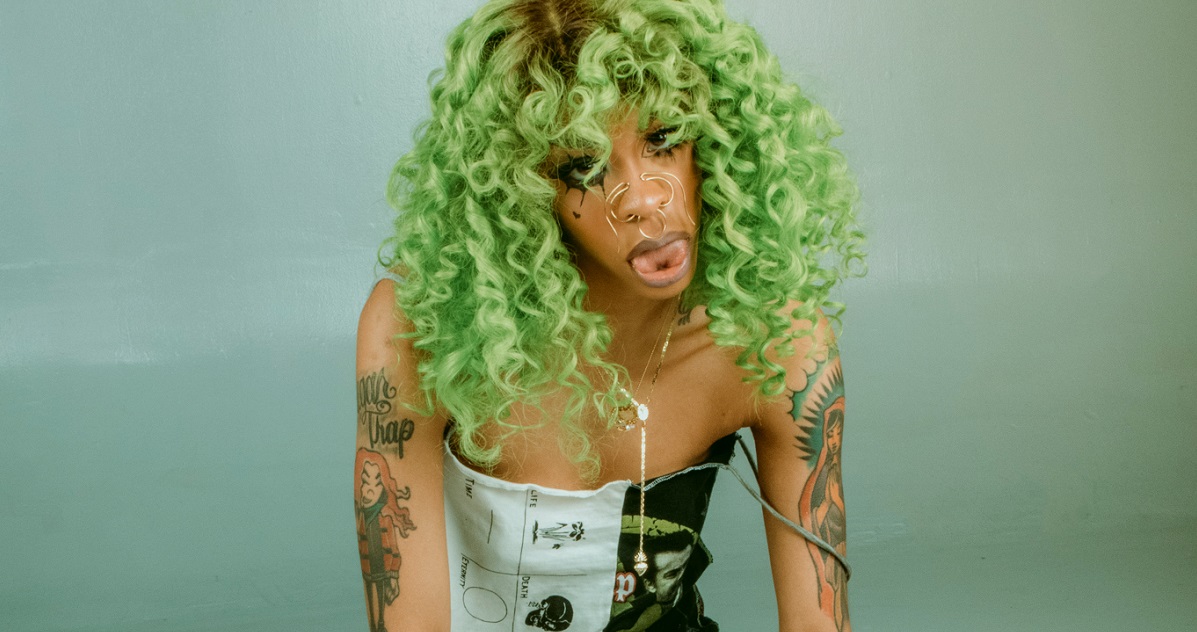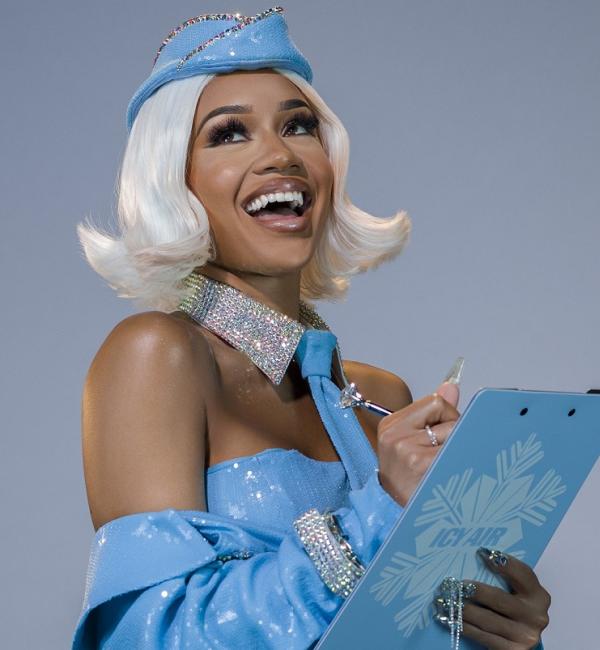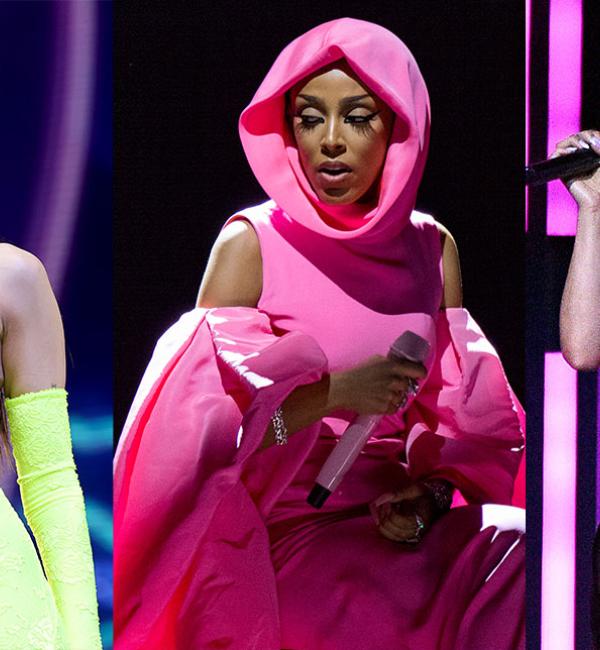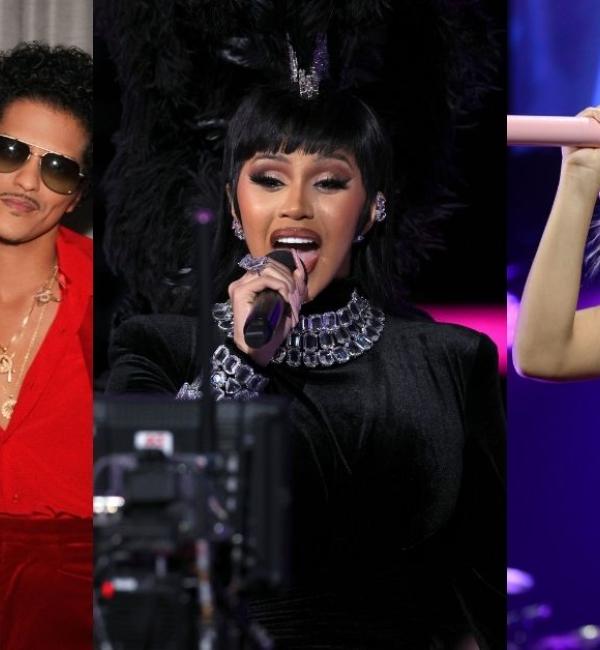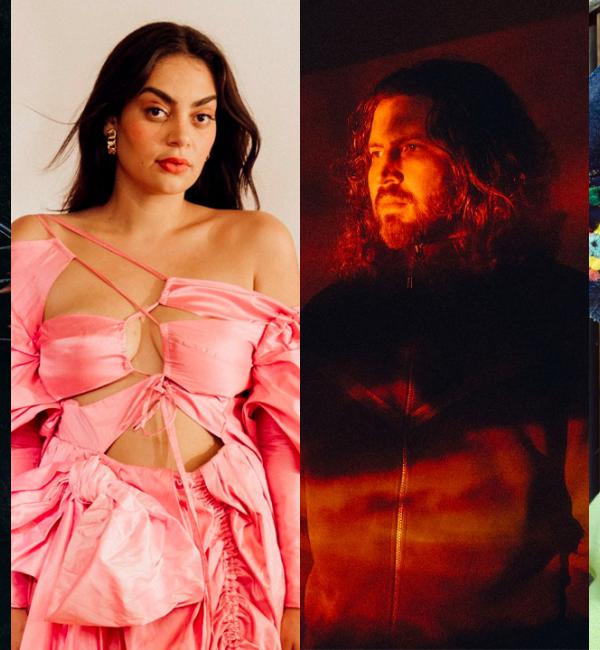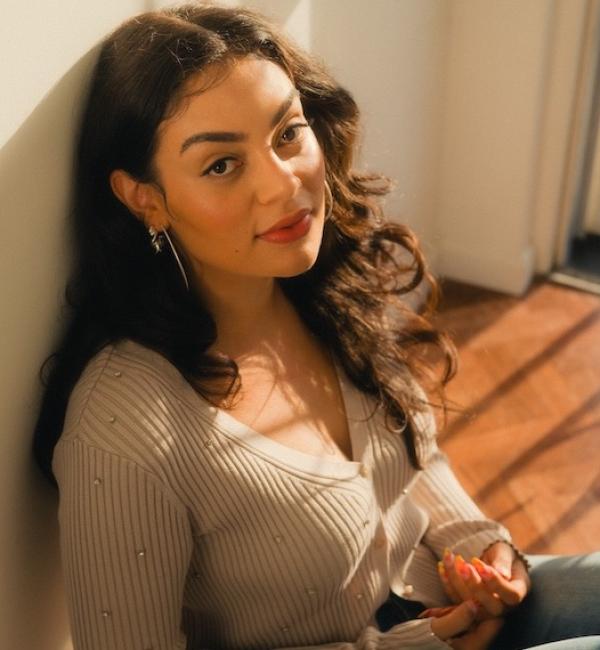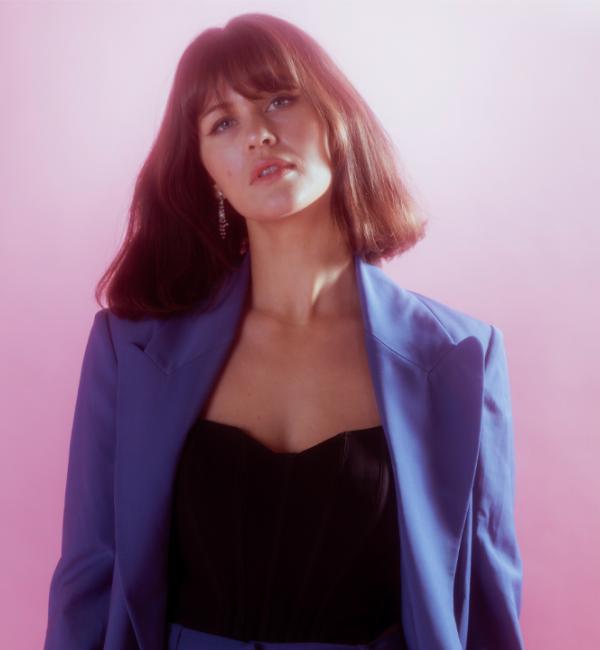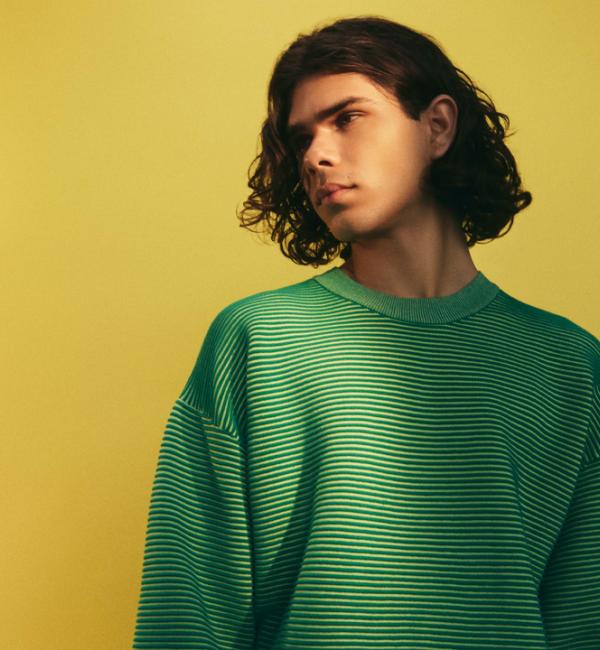
In 2018, a hip-hop song about cows went viral. Moo wasn't just lauded for its catchy hook, or ingeniously simple lyrics (Bitch, I'm a cow / Bitch, I'm a cow / I'm not a cat / I don't say meow / I go "mooo") but the star behind the song, who dressed in a cow print co-ord, shook her ass and stuck fries up her nose while splicing in images of bouncing anime boobs. It was refreshing, didn't take itself too seriously, and eschewed glossy HD quality for a pixelated Photobooth music video.
The rapper behind the hit, was the soon-to-be Californian star, Doja Cat, though many people expected her to just fade away as the Moo moment lost steam. Overcoming the fickleness of virality isn't always easy, but rather than desperately clinging on to her newfound fame, Doja (fka Amalaratna Zandile Dlamini) stuck to her guns and continued to do what she did best: be herself.
For decades, female artists - rarely by their own volition - have pandered to audiences. Most notably, in the early 2000s, the world watched as Britney Spears and Jessica Simpson were heralded as role models as they played into the whore/virgin dichotomy. Instead of nurturing their careers or making music that authentically represented themselves, these stars were cornered into playing role models, with the only other choice being the villain. Despite this, artists like Madonna, Lil' Kim, Nicki Minaj, as well as Lady Gaga all played valiant roles in stripping down archaic standards set in place by the music industry, relegated to playing the vamp in a business where women were expected to fit into one of two boxes.
We've seen this play out time and time again, with Christina Aguilera and her heel-turn on Stripped, Taylor Swift's good girl gone bad era with Reputation, and even Beyoncé who explicitly rejected her role model status on her eponymously titled record, Beyoncé.
But when the internet arrived, something wonderful happened. Forums, chat rooms, and discussion boards facilitated mass conversations about pop culture in ways the world had never seen before. During this time, the curtains began to pull away, revealing the inner workings of the music industry — and people didn't like what they saw. Inauthenticity, bad deals, creepy executives, and expertly sutured facades shocked pop music fans, informing what would come next.
read more: You Have To Watch Rico Nasty's Nightmarishly Awesome 'Own It' Visuals
The rise of social media, as well as websites like Tumblr and Soundcloud, further whet people's appetite for authenticity and music stripped of its carefully sutured sheen. As Facebook updates, tweets and Instagram captions became commonly used to divulge users' innermost thoughts, it was only a matter of time till these people grew up and became artists in their own right.
Today, rappers like Doja Cat are subverting the former female pop star template and finding a place in the industry while celebrating their own idiosyncrasies, quirks, and weird traits. Moo established who Doja was, but her subsequent single, Tia Tamera with Rico Nasty reiterated her whimsy while expelling any ideas of a feuding, potentially competitive rapper; a trope played out time and time again. She returned a few months later with an a capella video of her harmonising a song about having strep throat. Everyone loved it.
Doja's infectious irreverence, humour, wit and sexuality all mark her as a paragon in the social media age. And she's just one of many women in music declining to stick to the status quo.
In 2015, as Grimes rose to prominence off the back of her record, Visions she represented what was then a radical acceptance of body hair. When she decided to flaunt her unshaved armpits in a series of press photos, the Canadian star's PR team went into crisis mode. This wasn't how they wanted to represent this new up and coming star. "They wanted her quirky but groomed, wild but not too wild, more feminine than feral," Rolling Stone writer, Rachel Syme posits. In that interview, Grimes responded simply by saying: “I was like, armpit hair! Yes!”
More recently Billie Eilish, the Californian, home-schooled 18-year-old tasked with singing the upcoming Bond theme took what it meant to be a female pop star and threw it away. Eilish looks like a Soundcloud rapper, wearing clothes 5 times too big, with bright green hair at any one moment, then blonde the next. And through all of this, she's taken a stand against being sexualised by the media, though has publicly lamented her behaviour being placed in direct opposition with others in the industry. “I don’t like that there’s this weird new world of supporting me by shaming people that may not want to dress like me.” Her ASMR-like, whispery croon doesn't resemble any other pop star that came before her, and yet she is unequivocally the biggest star in the world.
Self-professed weirdo and rapper Rico Nasty embraces her oddities too. "The thing is, I'm not normal," she laughs during an interview with CR Fashion Book. "And I don't ever want to be," she adds. Her compelling mix of '90s nostalgia, punk rock, and high fashion aesthetics have made her one of the most endearing artists in the world.
To see women break down barriers and flourish in music despite habits, aesthetics, and personality traits the industry has marked as undesirable, unsellable and unmarketable is exciting, and signals a new era in music — one where women can finally be themselves. While we can credit the internet, fans, and platforms like Soundcloud for playing its part in democratising the industry, what really needs to be applauded is the women who descent against these archaic standards. Without them, we wouldn't have Moo, Grimes's hairy armpits, Billie's whispery meditations on being a teenager, or the punk raucousness that is Rico.
"If people think I'm weird, they're right. But also, they're weird too."
